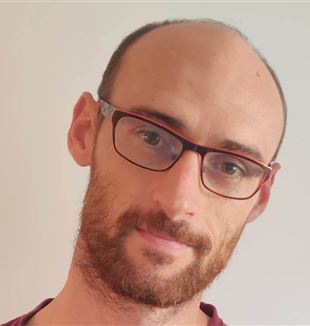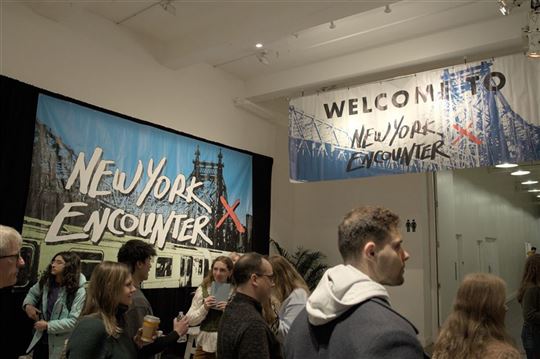
"In my book, the pain I encountered"
The Pope had recommended his book Little Brother, dedicated to the drama of migrants. Amets Arzallus Antia was among the speakers at the recent New York Encounter. We interviewed him."I recommend a book, Hermanito, that is ‘Little Brother’. It makes us understand what the desert crossing is: the trafficking of migrants, imprisonment, torture, the sea journey.” Pope Francis does not often offer reading suggestions. This happened during a conversation with the Jesuits of Malta in 2022, when he pointed out the book by Amets Arzallus Antia. It is the story of the odyssey of Ibrahima, a Guinean man who sets off in search of his younger brother who left for Europe and never arrived. It is a true story that the writer came across almost by chance. The book concludes with a poignant poem: “Now I know: the sea is not place to sit./ And you, so many times evoked,/ must be wondering who you are./ Perhaps you are the policeman/ who is deciding on my asylum application/ behind the desk of a police station./ You will see what to do with me. [...] Or simply/ you are you/ the one reading this poem./ You will ask yourself/ am I that you?/ Yes,/ if you want,/ you are that you,/ but not me,/ I am Ibrahima,/ and this is my life.'”
Antia is a poet; a bertsolar to be precise. Bertsolarismo is a type of oral literature, traditional in the Basque country, where storytellers, the bertsolari, sing improvised verses in Basque in rhyme and according to a precise metre. He was a journalist for some time before leaving the profession and devoting himself entirely to poetry. He was among the protagonists of the last New York Encounter, where he spoke together with Tawakkol Karman, the 2011 Nobel Peace Prize winner, on the topic of Fratelli Tutti, the 2020 encyclical. "When my publisher called me to tell me that the Pope had recommended my book, I thought it was a joke. Then I heard his words: along with surprise, there was immense gratitude.”
How did Little Brother come into being?
I was part of a group of volunteers in the Basque Country who helped migrants with bureaucracy and information. My city is on the French side. The Basque Country is the crossroads for a lot of migrants who are going north to France.
So you met Ibrahima?
Yes, six years ago. He was trying to figure out how to plan his life and needed to apply for asylum. To do that you have to go to the local police station and it is a difficult process. So I started to help him, interviewing him and creating a dossier with his story to facilitate the bureaucratic process. From the beginning, I knew that the story would become a book.
When did you have the idea?
When I met him he said a sentence that surprised me: “Brother, I did not want to come to Europe.” That is when I realized there was a story I could not even imagine. A story different from our prejudices. Ibrahima has a beautiful way of expressing himself, also given by his land’s oral storytelling tradition. In helping him for the interview, we became friends. Considering all these elements, I thought we could create something more than the file for the police station.
What was Ibrahima 's journey like?
An odyssey. He travelled for four years. He then spent about five years between Spain and the Basque Country without papers, because he was not granted asylum, and was never able to return home to his family.
How did this encounter change you?
For me it was a school. I learnt what it means to be a migrant in North Africa and what it means to be a migrant in Europe. I learnt that an illiterate person is capable of literature. And I encountered the pain described aseptically by newspapers and on TV.
Read also – Ukraine: “Called to remain men"
How can a human gaze be combined with the governments' struggle to cope with the migrant emergency?
I think it is very important to get closer to the problem by looking at it through a human perspective and not reducing it to statistics and numbers, because these are people who are suffering. And if you look at it with this perspective, I think our awareness can change.
So?
Let us spend less where we can spend less, like in the funds allocated to prepare for wars, in order to build humanity. The deeper problem is the gaze we have towards the migrant, whom we consider an 'other', a stranger, when they are like us.